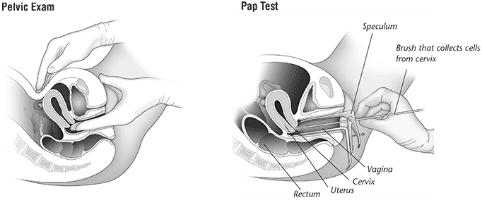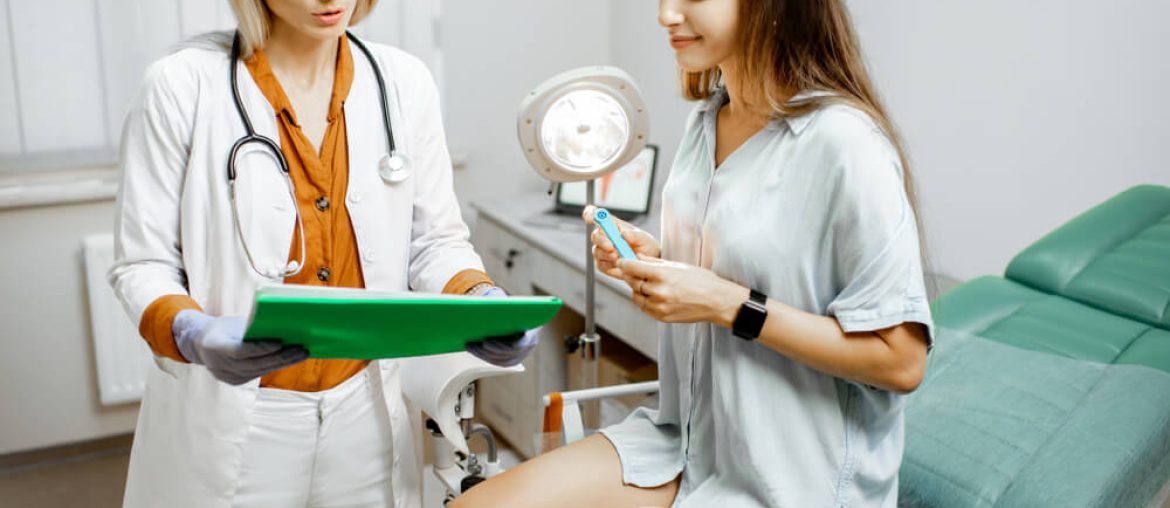Embarking on your journey towards reproductive health is a significant step in any woman’s life. Understanding the what, why, and how of your first gyn visit can not only demystify the process but also empower you to take charge of your health. May-Grant OBGYN, a leading provider of OBGYN care in Lancaster, PA, is dedicated to ensuring that your initial encounter with gynecological health is both informative and comforting.
When Should You Have Your First GYN Visit?
An obstetrician-gynecologist (ob-gyn) is a doctor who specializes in the health care of women. Girls should have their first gynecologic visit between the ages of 13 years and 15 years.
Is it Normal to Be Nervous Before the First Visit?
It is normal to feel nervous about your first visit. It may help if you talk about it with your parents or someone else you trust. You may want to let your doctor know you are nervous. He or she can help put you at ease.
What Should I Expect at My First Gynecologic Visit?
The first visit may be just a talk between you and your doctor. You can find out what to expect at future visits and get information about how to stay healthy. You also may have certain exams. Your doctor may ask a lot of questions about you and your family. Some of them may seem personal, such as questions about your menstrual period or sexual activities (including vaginal, oral, or anal sex). If you are concerned about confidentiality, you and your doctor should talk about it before you answer any questions. Much of the information you share can be kept confidential.
What Exams are Performed?
- You may have certain exams at the first visit. If you choose, a nurse or family member may join you for any part of the exam. Most often, these exams are performed:
- General Physical Exam
- External Genital Exam
- You usually do not need to have a pelvic exam at the first visit unless you are having problems, such as abnormal bleeding or pain. If you are sexually active, you may have tests for certain sexually transmitted infections (STIs). Most of the tests that teens need can be done by the doctor with a urine sample. You also may have certain vaccinations.
What Happens During a General Physical Exam?
During the general exam, your height, weight, and blood pressure will be checked. You also will be examined for any health problems you may have.
What Happens During an External Genital Exam?
In this exam, the doctor looks at the vulva. He or she may give you a mirror so that you can look at the vulva as well. This exam is a good way to learn about your body and the names for each part.
What are the Pelvic Exam and Pap Test?
- Even though you probably will not have a pelvic exam, you should know what one is. Another test that you will have later (at age 21 years) is a Pap test. This test checks for abnormal changes in the cervix that could lead to cancer.
- The pelvic exam has 3 parts:
- Looking at the vulva
- Looking at the vagina and cervix with a speculum
- Checking the internal organs with a gloved hand
- The pelvic exam has 3 parts:
- The doctor will use a speculum to look at your vagina and cervix. When you have a Pap test, a sample of cells is taken from your cervix with a small brush. To check your internal organs, the doctor will place one or two gloved, lubricated fingers into the vagina and up to the cervix. The other hand will press on the abdomen from the outside.

What are Vaccinations?
- Vaccinations or immunizations protect against certain diseases. The following vaccines are given to all young women aged 11–18 years on a routine basis:
- Tetanus–diphtheria–pertussis (Tdap) booster
- Human papillomavirus vaccine
- Meningococcal vaccine
- Influenza vaccine (yearly)
- In addition to routine vaccines, special vaccines may be given to young women who are at an increased risk for certain diseases. Listed are some of these vaccines:
- Hepatitis A virus vaccine
- Pneumococcal vaccine
What Special Concerns Can Be Discussed with My OB/GYN?
Many young women share the same health concerns. Most of these are a normal part of growing up:
- Cramps and problems with menstrual periods
- Acne
- Weight
- Sex and sexuality
- Birth Control
- STIs
- Alcohol, drugs, and smoking
- Emotional ups and downs
What Can I Do to Stay Healthy?
Making good lifestyle choices can help you be strong and healthy for years to come:
- Maintain a healthy weight by eating a well-balanced diet and exercising often.
- Avoid smoking, drinking alcohol, and using illegal drugs.
- Seek help if you have emotional ups and downs or feel depressed.
- Use birth control if you are having sex and do not want to have a baby.
- Protect yourself from STIs by using a latex condom. Know your partners and limit their number.
- Keep up with routine exams, tests, and immunizations.
Frequently Asked Questions
Q: At what age should I have my first GYN visit?
A: It’s generally recommended to schedule your first visit between the ages of 13 and 15, or earlier if you’re experiencing symptoms.
Q: What should I bring to my first appointment?
A: Bring your medical history, any questions or concerns you have, and a form of ID.
Q: Is the exam painful?
A: Most women experience little to no discomfort during the exam. Communicate with your provider if you feel uneasy.
Schedule Your Journey Towards Health
Your health and comfort are our top priority at May-Grant OBGYN. Scheduling your first GYN visit is a proactive step towards ensuring your long-term health and well-being. Whether you have pressing health concerns or simply wish to stay informed about your reproductive health, our team is here to guide you with expertise and care.
For compassionate, comprehensive OBGYN care in Lancaster, PA, reach out to us at 717-397-8177. Your journey towards a healthier future begins here.


















